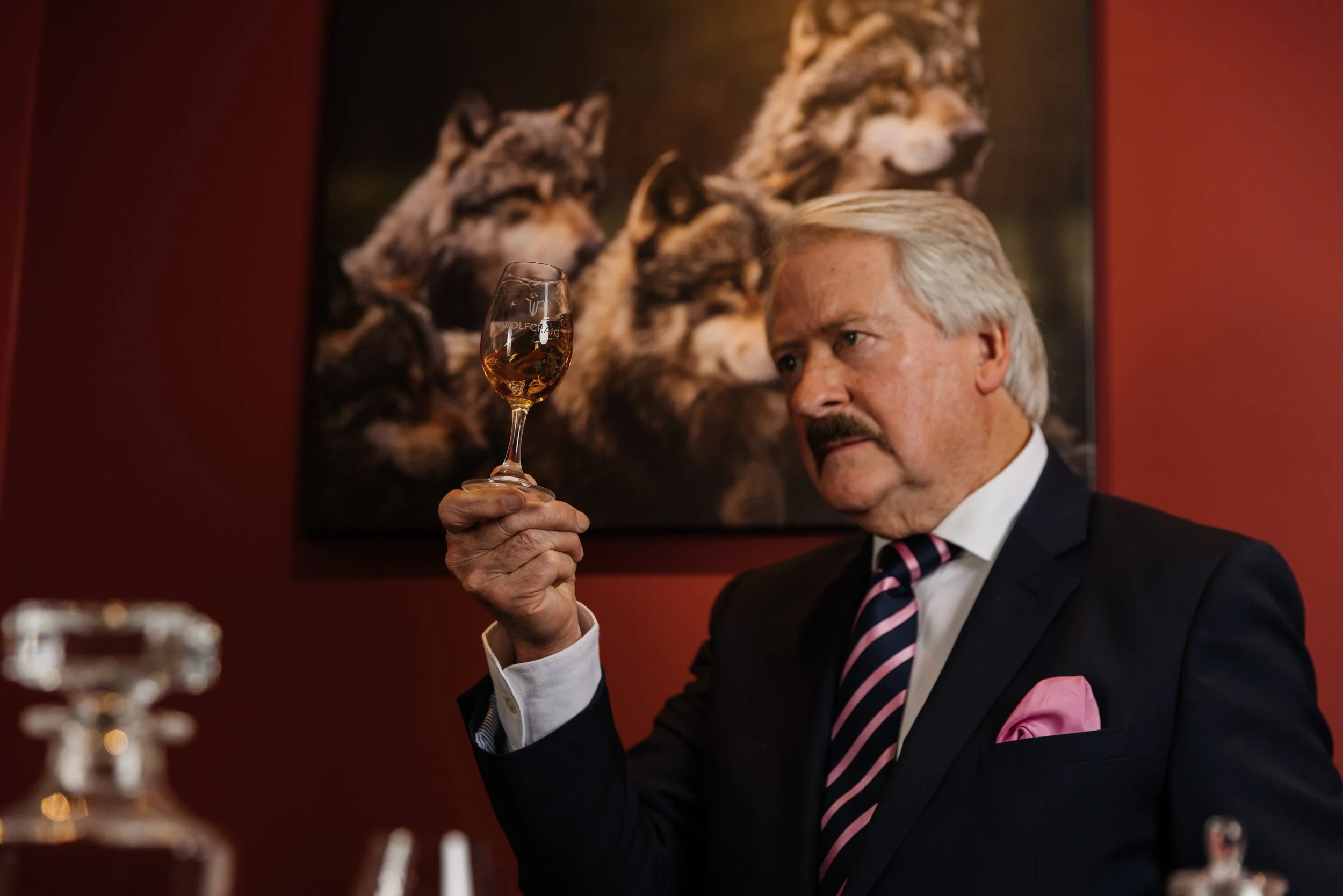The strange case of the whisky that never was
Whisky is investment gold — it always has been. But in the case of ‘cask investment schemes’, it’s an increasingly perfidious endeavour governed by parasitical imposters, posing as informed, knowledgeable and well connected members of the whisky trade. It’s nothing short of a stain on the industry, argue Nick Morgan and Isabel Graham-Yooll
The whisky business had always been about making money. Since the 19th-century first families, friends and sometimes landlords, and then banks, businesses and private individuals invested in whisky companies to make money — dividends that were paid from the profits on the sales of whisky. The greater the profits, the greater the dividends. The greater the dividends, the greater the number of investors queuing at the door of firms trying to get a share of the action. A virtuous capitalistic circle that keeps the industry alive, and which in particular has helped fund the huge investment in the industry over the past ten to fifteen years, by both large companies and small.
Few would disagree that a spirit of greed has cast a shadow over the industry during the same period. As the industry has fallen prostrate to worship at the altar of luxury, so the shadow of this spirit of greed has increased, becoming a malignant tumour that has spread to every part of the body politic of Scotch whisky.
“This is not investment for the good and growth of the industry. This is ‘investment’ for pure profit, although more often than not to the detriment rather than the benefit of the investor, particularly the gullible and unwary ‘investor’ in casks”
Nowhere is this spirit of greed more rife, nowhere is it more rampant, nowhere more out of control, and nowhere more dangerous in the lasting damage it can do to both the industry and consumers, than in the area of unlicensed and unregulated ‘investment’ in bottles, in ‘cask investment schemes’ and in the sales of casks to private individuals. This is not investment for the good and growth of the industry. This is ‘investment’ for pure profit, although more often than not to the detriment rather than the benefit of the investor, particularly the gullible and unwary ‘investor’ in casks.
It starts like this: ‘I’m going to make you an offer you can't refuse. I'm going to help you make the best investment decision of your life. I'm going to sell you an unregulated investment vehicle, right now. But don't worry, there are guaranteed returns. We’re talking a projected 8% to 12% return. 12.4% — that's a bit more exact. No, wait, annual returns of 13% to 20%. No, 28.3%! 37%!! Or, let's put it another way, 586% up in the past decade! Tax Free! This is what we like to call an “alternative investment”. It is interest-rate proof. Low inflation, high inflation. It all works. Well, you'll see inflation... in your pension!’
And it continues thus: ‘As a private investment asset — this is so good for the market. These are tangible assets. And it will only become better as the years go by. The great thing is that this is an unregistered security. The financial transactions between us are automatically exempt from registration requirements. It's marvellous! Don't worry about overproduction of this particular asset, it’s a buoyant market. I suppose, yes, what I'm helping you to buy has poor-ish provenance. And the ownership documentation is charmingly archaic. But on the plus side, there is an attractive lack of transparency. Yes, of course... you can see all the terms and conditions. But don’t worry too much about the detail, everyone’s at it, just sign here.’
‘Yes, what I'm helping you to buy has poor-ish provenance. And the ownership documentation is charmingly archaic. But on the plus side, there is an attractive lack of transparency. Yes, of course... you can see all the terms and conditions. But don’t worry too much about the detail, everyone’s at it, just sign here’
And only gets better: ‘Yes, I’m glad you asked that’, they will go on. ‘I can indeed make you a nice certificate too! What about “the association?” you ask. You mean the national trade body responsible for this asset? They will turn a blind eye. They really don't want to get involved in this sort of, small scale thing. Why? Because we’re talking about the UK’s biggest export of its type. Don’t worry! Did you know, this sort of trade has had a long-standing track-record... of fraud... since at least the 1960s? Mind you… make sure you don't buy from those other suspiciously cheap, high-pressure selling third-party dealers. Well, yes, they are my competitors. But they are the absolute crooks, you know. They are the ones mis-selling. And I should know, because that’s exactly where I'm buying this asset from ... to sell it onto you.’
My point is that those traders might be here today, but will they be gone tomorrow?
And all without any fear or concerns: ‘Have you not seen how much money those early investors have already made Thousands! No! This is nothing like a Ponzi scheme! Not in the least ... because this is a business that evidently exists, and the product I’m selling to you does too. Mostly. Which is important because your legal ownership of this liquid asset might be difficult to prove if things get a bit fuzzy. No, this is more like... a good old fashioned pyramid scheme. You see, the big profits were earned by the early investors (well, the ones that didn’t get conned, obviously). Then the lucky ones sold this asset onto me… and now I need to find potential investors, urgently, before the pyramid collapses. Trust me. Yes, there are proven Exit Strategies. Loads of them. Well, you can sell back to me. And I definitely won't go bankrupt just before you decide to liquidize your investment. I promise. There’s no need to be too confused. What you'll actually own is not complicated, and I’ll be happy to advise you on everything, including what to invest in. And look at me! How well am I doing! I’ve got a complete lack of expertise! I used to be selling second-hand cars. Anyone can do it!’
‘Trust me. Yes, there are proven Exit Strategies. Loads of them. Well, you can sell back to me. And I definitely won't go bankrupt just before you decide to liquidize your investment. I promise’
From the proud ‘£16 million a pop’ headlines in The Guardian, the ‘Liquid Gold’ teaser, investment-advice columns in The Financial Times, glossy advertisements in The Spectator to the video by ‘millionaire whisky investor con artists’ in The Mail On Sunday, and the numerous ‘investment guides’ promised in social media advertisements. Everyone always sings from the same hymn sheet. ‘It’s the others who are the wrong ‘uns… take my advice… oh and if you would like to buy a cask I’ve got a few here I can flog you on very good terms.’ They all promise to tell you ‘how to buy a cask of whisky safely.’ And, laughingly, as the Advertising Standards Authority and HMRC are starting to pick up on some of the more extravagant claims and unusual business practices of some of these firms, a group of them have announced the formation of an association ‘to protect consumers’. You couldn’t make it up.
It’s not as if the Scotch whisky industry hasn’t succumbed to the illness of greed before and suffered the consequences. There was the Kidd Eunson failure of 1887, the collapse of a Leith based ‘whisky ring’ from which the ‘Scotch whisky trade emerged like a Phoenix from the fire, purged (and some said cleansed) by the ordeal through which it had passed.’ It was a ‘fictitious and unwholesome style of business’ creating the ‘atmosphere of a vicious system of trading…’
More well known is the Pattison crash of 1898. Self-styled whisky historians always focus on the Pattison brothers, their lavish and extravagant spending and almost innocent criminality, and the parrots – who were as illusory as the profits promised in the company’s prospectus. But who were the real losers? Punters seduced by false promises (‘in most cases the investor would do well to deposit these prospectuses in the waste paper basket’ wrote Pall Mall Gazette in August 1898). ‘A boom has to be paid for’, concluded the same paper the following year, ‘and invariably by the investor’.
‘It’s not as if the Scotch whisky industry hasn’t succumbed to the illness of greed before and suffered the consequences…[with] punters seduced by false promises’
And of course there was the cask investment craze of the late 1960s and early 1970s, in the USA and the UK, which echoes almost everything you might read now. The ensuing newspaper headlines should make sobering reading for anyone thinking of getting involved today: ‘Con man sentenced in liquor swindle’ — ‘Whisky deal turns sour’ — ‘Scotch whisky racket bad news’ — ‘Bogus Scotch scheme could cost 150 years’ — ’Amateur suckers for Scotch whisky investments’ — ‘The case of the whisky that never was’ — ‘Americans are victimised in Scotch whisky swindle’ — ‘Scotch broker pleads guilty’ — ‘Whisky godfather gets eight years for murder plot’ — ‘Investors got firewater in malt whisky fraud’ — ‘£5 million whisky swindle’. Sobering reading indeed.
One has to conclude that when the bubble of the current social-media fuelled cask investment craze finally bursts the number of victims will be far greater, the amount of money lost far greater, and the reputational damage to the Scotch industry far worse than it was in the 1970s. In today’s internet age everything is amplified. Old style ‘reputational management’, putting a lid on the bucket to stop the contagion spreading, impossible.
Then, as now, the industry and its trade association have feigned a strange indifference to the fate of unwary, naive (and probably greedy) investors who were persuaded they were buying into an industry whose standing was beyond reproach. But ultimately the industry does bear some responsibility, and it does bear some duty of care to consumers who are being sold casks that they filled. Consumers aren’t just buying the casks, they are buying into the names, heritage and reputations of the distilleries from which they came.
How is it that an industry with a hard, long earned and precious reputation for integrity and probity can stand by while its good name (and very often its invaluable brand names too) is being hawked around in an unregulated market place by parasitical imposters, posing as informed, knowledgeable and well connected members of the whisky trade? How can this be good for growth?
‘The industry does bear some responsibility, and it does bear some duty of care to consumers who are being sold casks that they filled. Consumers aren’t just buying the casks, they are buying into the names, heritage and reputations of the distilleries from which they came’
Who would put their good standing, their good character, into the hands of a bunch of card sharks playing Find the Lady on Westminster Bridge? And yet that is what the Scotch whisky industry collectively seems willing to do.
The weaponised high-pressure sales techniques of many of the companies involved in this trade is reminiscent of the recurring scandals surrounding the sale of worthless (or sometimes non-existent) time-share holiday properties to unwary and gullible consumers, lured in by unrealistic promises of huge returns. Often companies preyed on pensioners in the same way as some cask investment companies attempt to persuade people to part with their pension pots in return for casks whose value has been grossly inflated. In the world of dodgy time share schemes not only immorality, but organised crime and criminality was never too far distant.
No one would believe that all, or even the majority, of cask investment companies are engaged in illegal practices, but the fact of the matter is that all these firms use the same hyperbolic language and the same unlikely assurances to try and make a sale. They are all tarred with the same brush. One bad apple is enough to rot a whole barrel.
The whisky business is all about making money. It has always been so. But history has shown, even very recently, it’s not as safe an investment as might be wished for. If private individuals want to invest in whisky they should buy shares in a quoted company on the stock exchange, and get real skin in the game. The sale of casks by unregulated dealers to consumers with no legal protection, on the promise of grossly exaggerated profits, is a stain on the reputation of an industry which already suffers from the taint of greed. Standing by and doing nothing while consumers are fleeced of their savings is unacceptable. Far from being ‘good for growth’, it’s only good for nothing.
This is an edited version of the two speeches that Morgan and Graham-Yooll gave at The Worshipful Company of Distillers debate in the summer, opposing the motion ‘This house believes that the emergence of whisky as a private investment asset is good for the growth of the wider global whisk(e)y market.’ Morgan and Graham-Yooll carried the room by a large majority
Dr Nick Morgan is a writer, commentator and former Marketing Director of Diageo. His official history of Johnnie Walker, A Long Stride, the History of the World's No 1 Scotch Whisky was published in 2020. He is a regular contributor to Barley.
Isabel Graham-Yooll has been director of Whisky Auction, where she championed the interests of the consumer against fraudsters. She is launching an old and rare spirits consultancy.







